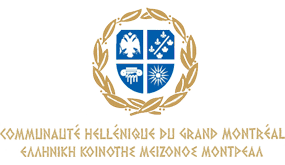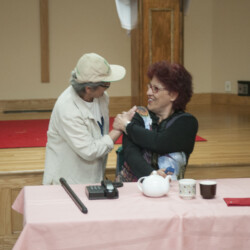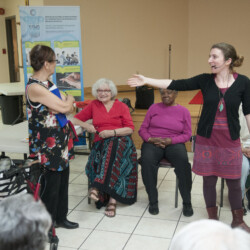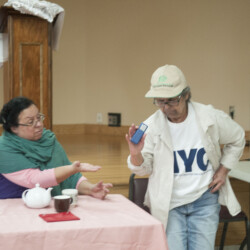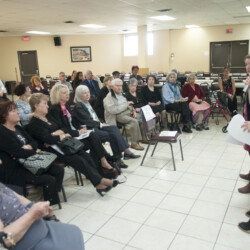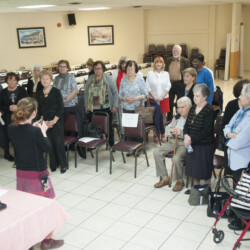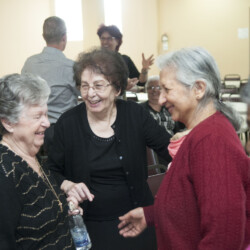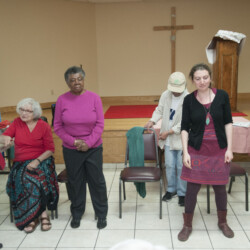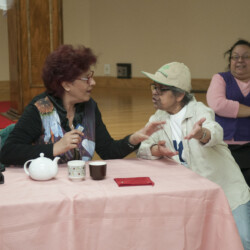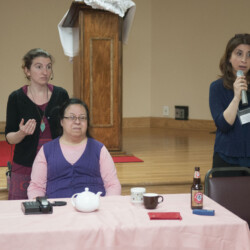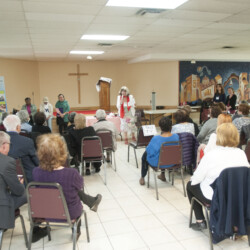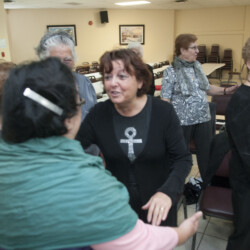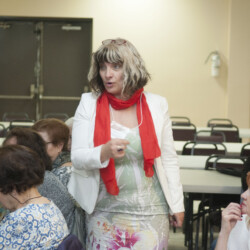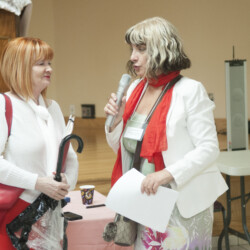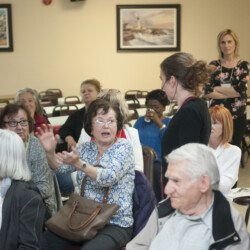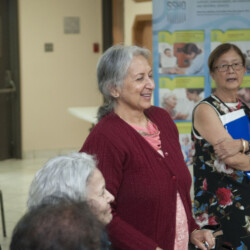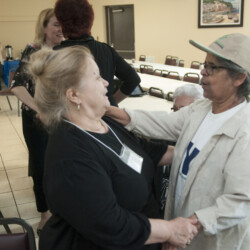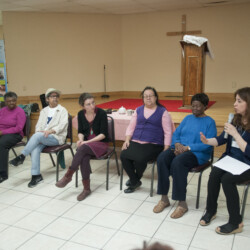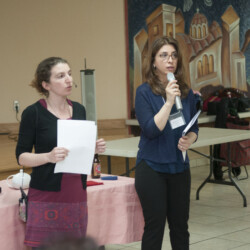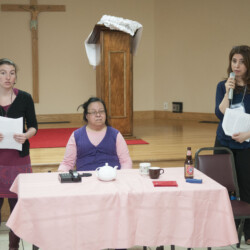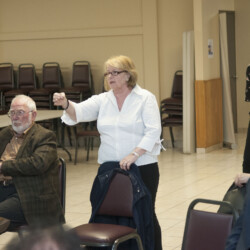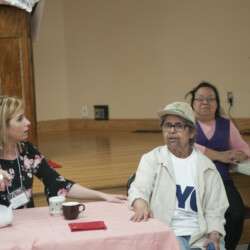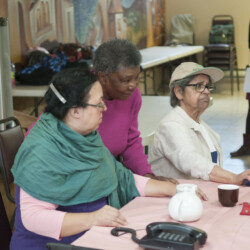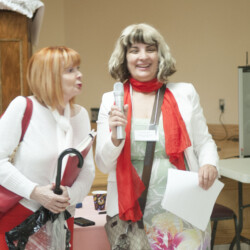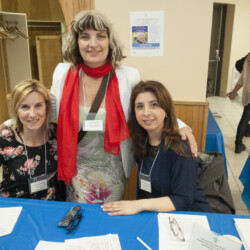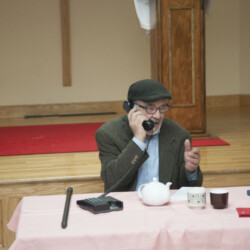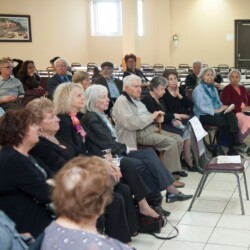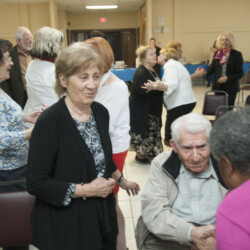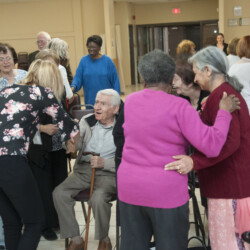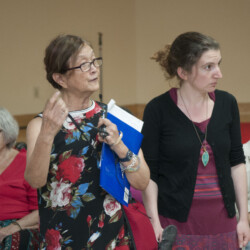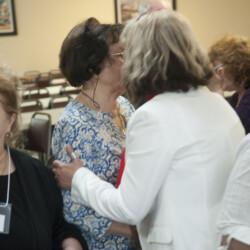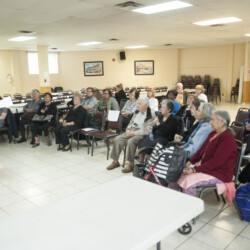RECAA-SSHQ Elder Abuse Awareness Theatre
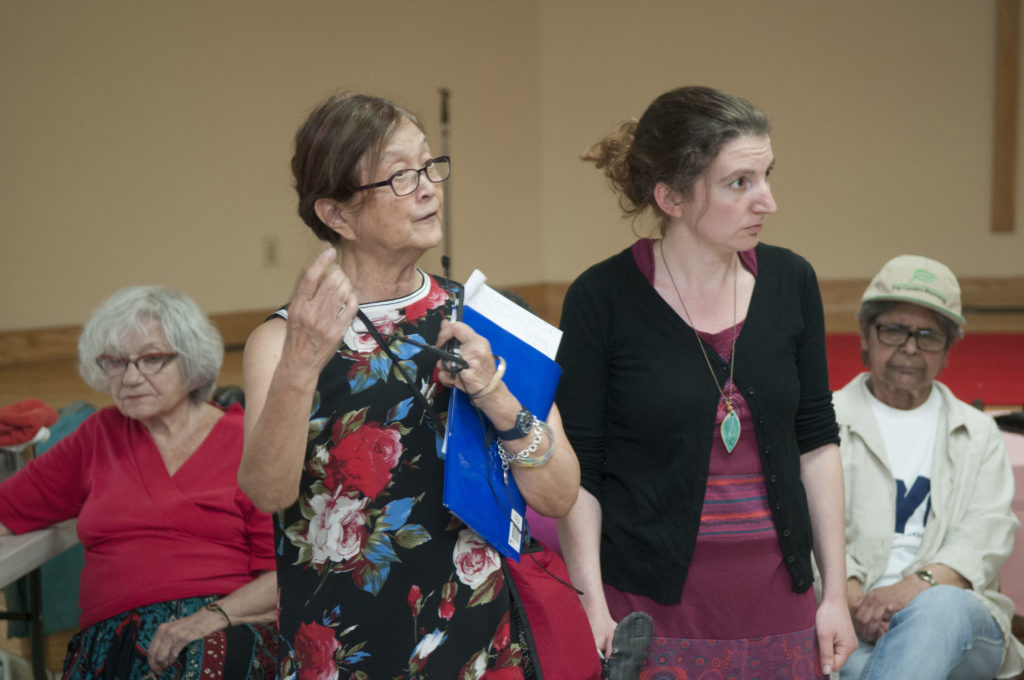
On Thursday, May 10th, 2018, in the reception hall of Holy Cross Church, Laval, The Hellenic Social Services of Quebec (SSHQ) in collaboration with Respecting Elders Communities Against Abuse (RECAA), featured a theatre production entitled, “Working Towards a Culture of Respect”.
The event was funded by the Ministry of Families – Secretariat to Seniors (MFA-SA), whose representative, Ms. Louise Buzit-Beaulieau, National Coordinator – Cultural Communities of the MFA-SA, Montreal Public Health Branch was present, as was also, Mr. Francois Godin, Elder Abuse Coordinator of the Laval Integrated Health and Health and Social Services Center (CIUSSS – Laval).
The objective of this event was to raise awareness of the different types of Elder Abuse, to recognize the signs and to practice a variety of responses to abusive behavior, in order to prevent, but most importantly, to break the abusive cycle from continuing.
The Director, SSHQ, Ms. Eleni Fakotakis, welcomed the participants and introduced SSHQ team members who were present, such as the President of SSHQ Ms Eleni Tsinalis, Board members Harry Babaroutsis, Angeliki Kritikou, Lidia Scalcou, Intervention Counselor for Laval, Chryssa Beletsiotis, who coordinated this event and Intervention Counselor for the South-Shore, Elena Papadopoulou. The Director briefly described the various forms of Elder Abuse: Physical, Sexual, Psychological, Financial, Neglect (often observed in public institutions and residences), Ageism and Violation of Individual Rights and Freedoms.
The workshop begins with a theatrical representation of one or more forms of abuse. The actors are senior performers from diverse origins, who are part of the organization, RECCA, responsible for sensitizing the public to senior abuse and how to prevent it.
The plot: An elderly woman and widow named “Auntie Maria”, has recently been released from the hospital and is at home, suffering from a temporary loss of autonomy, she is expected to slowly regain her autonomy. In the meantime, Auntie Maria has to depend on caregivers (from the public system and from family members) to help with her daily living routine. She has no children of her own and is unable to afford a private, paid caregiver, therefore, Auntie Maria relies on the public health system. With the help of her social worker from the local CLSC, she has been assigned, a PAB (Préposé aux bénéficiaires – beneficiary assistant) and she also relies on a natural caregiver, her nephew (the only family member that visits her). Both the PAB and nephew are being abusive in their ways.
How the workshop operates: Throughout the scenes of the play, which are presented in a total of approximately 7 minutes, the audience witnesses different forms of elder abuse, taking place, such as: neglect, financial and psychological. Subsequently, the audience is instructed to become active participants in the theatre workshop as the play is repeated for a second time and third time. The participants are encouraged to raise their hands and shout, ‘’stop!’’ Thereby, actively objecting each time they witness abuse taking place or are uncomfortable about what has just happened. Then, various members of the audience, take turns becoming participants, acting out the role of Auntie Maria, in the play, illustrating to the spectators how they would react to the mistreatment. The role-playing and reactions are discussed by participants.
The discussions that ensued became at times heated, as many participants felt that they have heard of or experienced themselves these type of situations. It is sad when it involves a family member but it is very important to discuss openly, feelings of mistreatment. Many expressed that the service offered by the CLSC and or PAB is typical of the neglect that is so often experienced by the recipients of the health system and they were eager to share their personal experiences and advice. Comments included: ‘’ We have to insist on getting the service that is within our rights to receive – do not expect less!’’, ‘’Ask to receive help from SSHQ to help you receive the service you deserve’’, ‘’Interesting and fun workshop’’, ‘’workshop was empowering’’, ‘’We have a better idea of how to react and handle such mistreatment’’, ‘’We can be of assistance to someone we know who is being mistreated’’. The workshop was well attended and enjoyed, participants expressed an interest for more such workshops to take place.
If you, a friend or loved one is in an abusive situation please feel free to contact us. Chryssa Beletsiotis 450-688-2091 or Elena Papadopoulou 450-443-8197
June 15: World Elder Abuse Awareness Day
